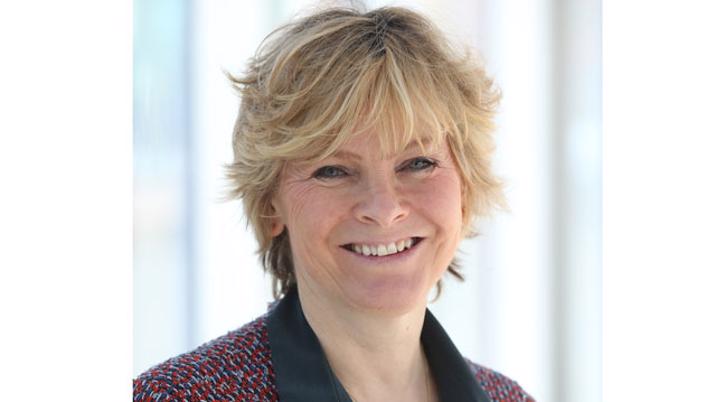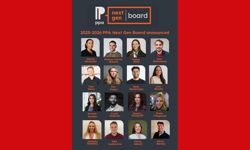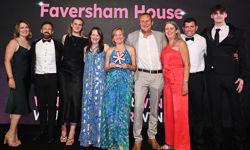
Publishing is a family affair for Amanda Barnes, chief executive of Utility Week publisher Faversham House – the media business co-founded by her father, Vic Gould. It has provided a strong platform for company culture, too, helping the East Grinstead-based company to attract talent in the years since 2010 during which it re-structured and re-focused following an MBO.
“My father and his business partner, Jack Pearce, set up the business back in the 1960s based on a controlled circulation model which, at the time, was quite new before moving early into regional exhibitions,” Barnes explains.
Over the years, the pair, whose first magazine was Heating and Ventilating Review, built a stable of building services and home improvement-related titles and a regional events business before ownership was eventually passed down to the next generation. Numerous family members worked in the company along the way including Barnes, who moved into publishing after an early career in finance, joining the company after leaving the City to do an MBA.
“Around 2006/7 as recession loomed, the business was mainly about ad revenue and exhibitions – though we’d got into online early. Luckily, as it turned out, we did not have much classified advertising to lose,” she says. “Even so, we were siloed – with separate magazines, digital and events teams – and our structure was typical B2B and dictated by platforms.”
Recession hit Faversham House hard and, according to one report, its ad revenues declined by 40%. But the company came out leaner and a decision by Barnes’ three older siblings to move on prompted Barnes to initiate an MBO funded by private equity which was followed by the buy-out of the private equity partners a few years later when, in 2013, the opportunity arose.
Our mantra in the years that followed the MBO was to become a thoroughly modern media business.
Restructure
Barnes adds: “A re-focusing and rationalisation to re-engineer the business for the future then followed.”
A decision was taken to re-focus Faversham House around three core market sectors: utilities – Utility Week, bought around this time from RBI and recently named Business Media Brand of the Year at the PPA’s 2016 Independent Publisher Awards; sustainability and energy – among Faversham House’s brands in this sector are Sustainability Live and environmental brand edie (including edie.net, edie.Live, edie.Conferences and edie.Leaders Club) and Network, a new title for energy network lead engineers, was launched last year; and visual communications – the flagship is the Sign & Digital UK show. Meanwhile other titles (including Builders Merchant Journal and DIY Week) were sold.
“Our mantra in the years that followed the MBO was to become a thoroughly modern media business,” Barnes explains.
“We were in multiple markets with a small management team and couldn’t do everything we were doing across all markets as effectively as we would like. On top of that, many of the markets we were serving were print-focused. So, we completely re-aligned the business around specific audiences to delivered tailored, customer solutions.”
Business was scaled back and priorities refined. By 2015, the company had re-structured to be audience-focused and platform-neutral. Though conference producers and event managers sit apart, the brand marketing and sales functions are integrated into an audience-based, matrix structure.
“We’ve done a lot of tidying up,” Barnes notes with no little understatement.
Today, Faversham House has a staff of 75 and publishes five B2B magazines, organises three large-scale B2B exhibitions, four awards events, over 30 UK conferences (with more in the pipeline), nine websites and a plethora of related events and tailored content, both in digital and print. Turnover was £7.7m in 2016/7. Events account for 65% of total revenue. And total revenue grew 7% y.o.y in 2016/7 compared to y.o.y growth of 3% in 2015/6.
Most major websites still look like magazines but we are hoping to move beyond that.
Membership model
The focus now is on developing and expanding a membership model with the aim of sales and subscriptions driving the next stage of Faversham House’s development and growth.
“Currently, we are developing a new website for Utility Week which will be subscription-based,” Barnes explains.
“People have to pay for good content – it’s not sustainable otherwise, because you can’t do it on the cheap, so I’m with Rupert Murdoch on that. It is an approach we will roll out depending on each market and our customers’ wants and needs. Our sustainability audience is strictly digital and face-to-face only.”
Use of the company’s online services is changing and a new website is now being designed according to changing user requirements, she adds, which means catering for greater personalisation and improved discoverability.
“Most major websites still look like magazines but we are hoping to move beyond that,” Barnes believes, though quickly adds that with user testing still underway, it is too early to elaborate. “As a company, we are willing to be bold. But the question is always: how bold do our audiences want us to be?”
Boldness, an attribute Faversham House prides itself upon, is underpinned by a clear sense of underlying purpose which was identified during a major values exercise conducted to understand company culture and optimise it following the 2010 MBO.
As a company, we are willing to be bold. But the question is always: how bold do our audiences want us to be?
Focus on company culture
“We knew our company culture was strong and we wanted to use it better. Our underlying purpose is to inspire people – our staff and our customers – to make a difference, and to be a beacon of good practice,” Barnes explains.
“We also clarified our values as a business which are around creativity, rewarding innovation, failing fast, being ambitious – we punch above our weight in many of our markets; for example, we regularly break utilities stories before the mainstream media because we are immersed in our customers’ industry and because we make sure we give back in terms of the business intelligence and service we provide and the value we offer.
“We care and cultivate a high sense of integrity which, perhaps, comes in part from our family heritage. And we come back to this all the time – it’s how we judge ourselves. We are in East Grinstead at the end of the railway line and it’s more difficult to attract good staff but they come because of the autonomy we give them when they get here, our great brands and the good work / life balance, and our values definitely help us in this respect.”
Culture is instilled top down and by example, and this feeds into relationships between Faversham House and its customers and also suppliers, Barnes continues: “A lot of companies trust us with their entire marketing budget and we want people within our business who will respect that because it is important to our business to foster long-term relationships.”
Looking ahead, she adds that deepening and strengthening the business’ audience focus is an important priority.
“I’d like to see audience revenue grow and eventually equal commercial partner revenue,” Barnes observes. “Data is now one of our biggest drivers and we will grow our analytics, specialist reports and research. Also, we will continue to integrate our multi-platform properties and further growth will be driven by that.”
Our underlying purpose is to inspire people – our staff and our customers – to make a difference, and to be a beacon of good practice.
The GDPR threat
An imminent challenge – for all publishers seeking to increase audience revenue – is GDPR, the EU General Data Protection Regulation which, irrespective of Brexit, will have an impact on organisational processes around compliance when it comes into effect in May next year. And the company is now working on how best to gain permissions from its audiences to be able to continue to market to them existing and new products and services moving forward.
“The absolute implications are profound,” she notes. For example, if you are selling a webinar and invite people to sign up then offer them a White Paper in exchange for their contact details to share with your sponsors, that won’t be allowed in that same simple way anymore.
Barnes continues: “In effect, the revenue models many publishers like us are currently using to supplement ad revenue are under threat. To combat this, we must make sure we give customers what they want to ensure they are fully engaged with us and happy with us selling them more. And that’s where the deeper relationships we are working to build will come into their own.”
Also, a challenge will be Brexit which, Barnes says, has already delivered “a dramatic effect on currency exchange” resulting in lost revenue.
Barnes bemoans the skills shortage, too, with competition for the best talent accelerating and salary inflation on the increase, too. Anecdotally, she admits, clients have confided their concerns about talent “going back” to their home countries, and she describes the potential impact of this on marketing budgets as “worrying”.
Yet the growing complexities of the marketplaces Faversham House serves also provide new opportunity.
“There is a clear and growing need for quality trusted information which makes it a good time to be in information publishing and also to be starting a subscriptions push,” Barnes believes. “For all the challenges we face, the good news for our business is that in the light of the changes we have made over the past couple of years, we are on track to take advantage of those opportunities.”
The revenue models many publishers like us are currently using to supplement ad revenue are under threat.
This article was first published in InPublishing magazine. If you would like to be added to the free mailing list, please register here.










